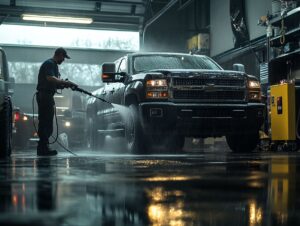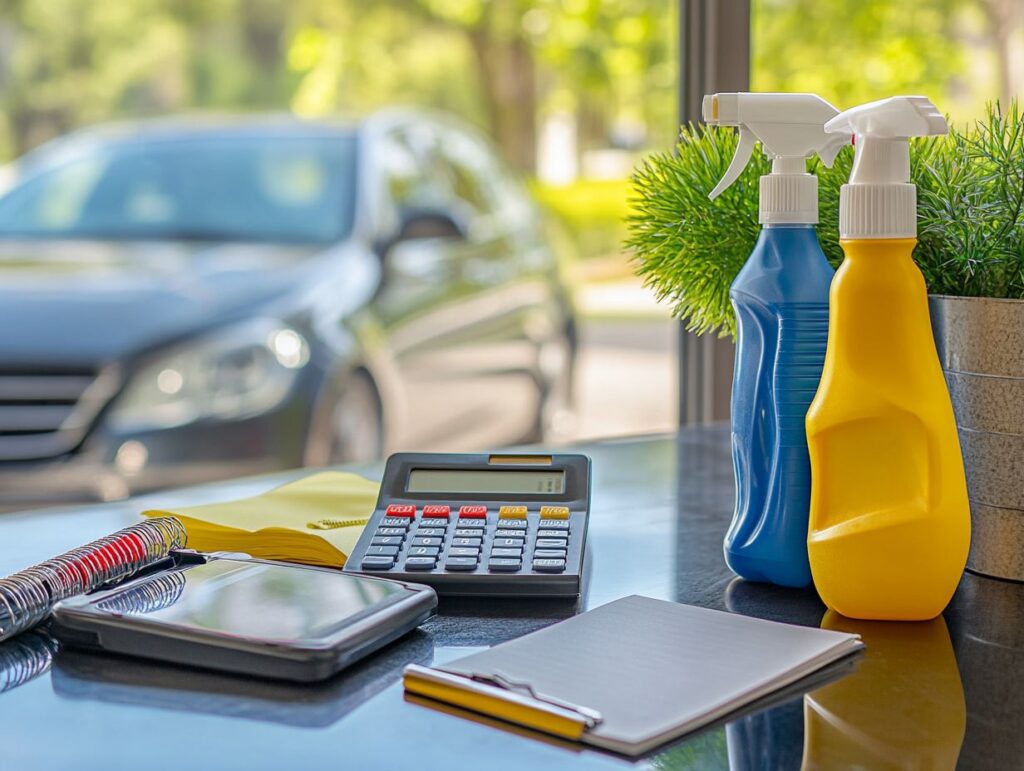
Starting an auto detailing business can indeed be an exciting venture, but it is essential to understand the startup costs involved for achieving success. This overview will detail what is necessary to launch a detailing service, covering everything from essential equipment and supplies to the required business licensing and insurance.
Several factors influence startup expenses, and we will discuss effective strategies for minimizing these costs, as well as what one can expect in terms of return on investment. Whether you are embarking on an entrepreneurial journey or seeking to expand your knowledge, this guide offers valuable insights to help you make informed decisions in the auto detailing industry.
Startup Costs for an Auto Detailing Business
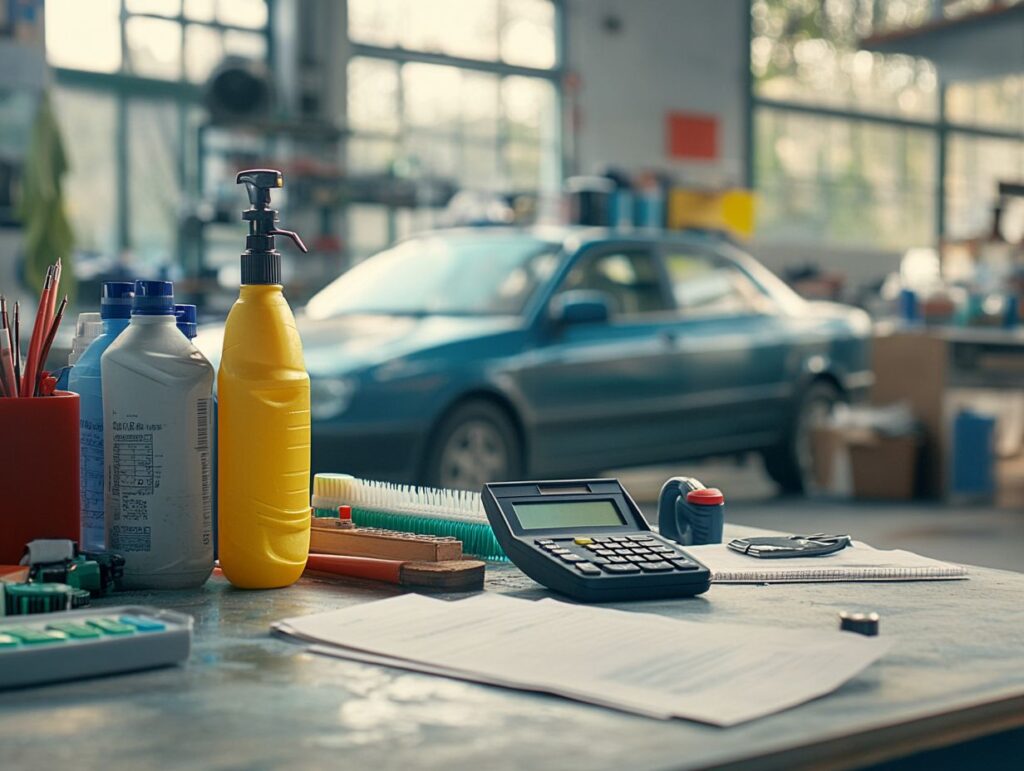
Starting an auto detailing business requires careful consideration of various startup costs to ensure financial viability. These costs include essential equipment, cleaning supplies, and tools, as well as overhead expenses like location rental, insurance, and labor costs.
Additionally, it is important to establish a well-planned marketing budget to effectively acquire customers and lay a strong foundation for business growth. By understanding these expenses, future business owners can create a comprehensive business plan that encompasses financing options and cash flow management.
Equipment and Supplies
The success of an auto detailing business largely depends on the quality of the equipment and supplies used. This includes essential items such as pressure washers, vacuum cleaners, and high-grade detailing chemicals, as well as tools like microfiber towels and wax applicators.
Having a variety of polishers and extractors can greatly enhance the service quality, enabling deep cleaning and restoration of different surfaces. It is also crucial to invest in quality hoses, buckets, and detailing brushes to prevent scratches and achieve a flawless finish.
When considering the acquisition of these supplies, it is important to evaluate the options of purchasing outright versus leasing equipment. Leasing may provide lower upfront costs and the flexibility to upgrade regularly, keeping pace with advancements in the industry.
Choosing high-quality products not only fosters customer satisfaction but can also result in repeat business and referrals, ultimately contributing to long-term success.
Business Licensing and Insurance
Acquiring the necessary business licenses and permits is a crucial step for any auto detailing entrepreneur. This ensures compliance with local regulations while also taking into account the financial aspects, such as insurance coverage, tax obligations, and potential legal fees.
To operate legally, one must conduct thorough research and apply for specific licenses that differ by state and municipality. These may include a business license, sales tax permit, and environmental permits that govern waste disposal.
Additionally, obtaining comprehensive insurance is essential for protecting against potential liabilities, as accidents can result in significant legal fees or damages.
It is also important to understand tax obligations, including income tax and potential franchise taxes, as these financial responsibilities can directly impact the overall profitability of the business. Without the appropriate permits or insurance coverage, an entrepreneur risks incurring costly fines, which could disrupt workflows and impact profitability.
Marketing and Advertising Expenses
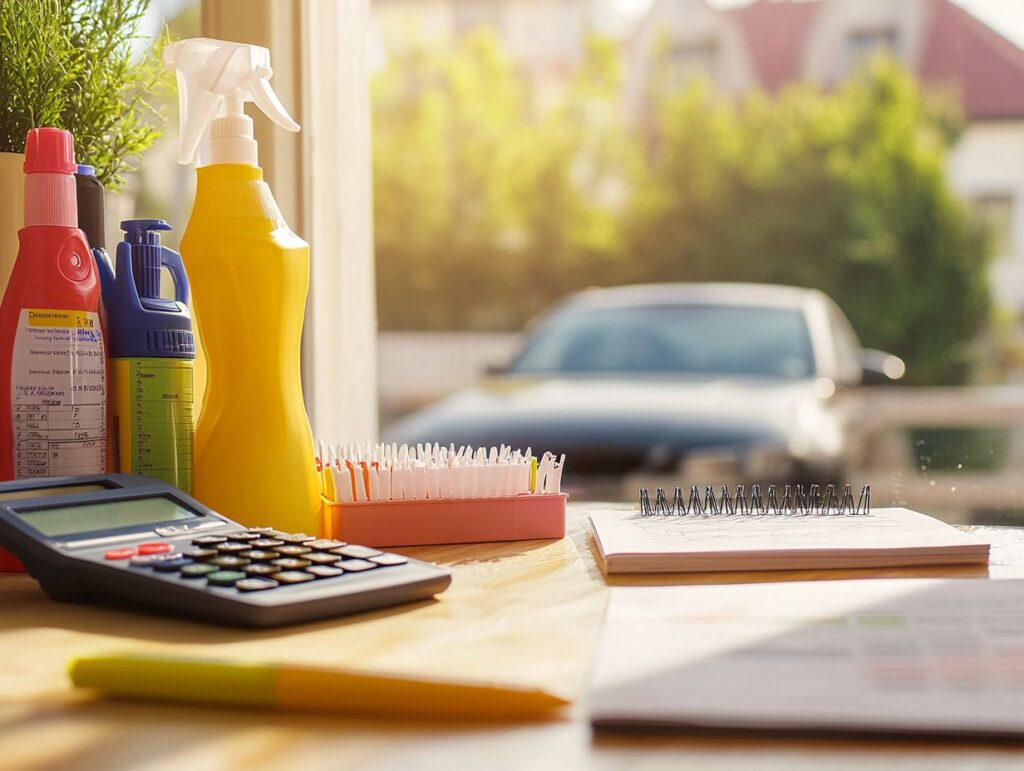
An effective marketing strategy is essential for customer acquisition in the auto detailing industry. This requires a well-planned marketing budget that encompasses the development of an online presence, promotional materials, and local advertising efforts.
This balanced approach allows businesses to attract potential customers through a variety of channels. Online marketing tactics, such as search engine optimization and targeted social media campaigns, enable auto detailing services to present their offerings to a wider audience.
Furthermore, utilizing localized advertising—such as participating in community events and distributing flyers—can be instrumental in reaching clients in specific areas.
By integrating both online and local strategies, a business can not only enhance its visibility but also strengthen its connection with the community, fostering customer loyalty.
Ultimately, having a diversified marketing plan is crucial for long-term success and growth, ensuring that the business remains competitive in today’s market.
Factors Affecting Startup Costs
Several key factors can greatly influence the startup costs of an auto detailing business. These factors include the chosen location, market demand, and the specific business model selected.
Additionally, one must consider operational costs and conduct a thorough analysis of the competition in the area. Understanding these elements is crucial for effectively planning and managing the financial aspects of the business.
Location and Market Demand
The location of your auto detailing business is crucial in determining market demand, as it directly impacts the service area you can cover and the specific target market you intend to reach.
Selecting a site that is easily accessible not only encourages spontaneous visits but also promotes repeat business from satisfied customers. A strategically chosen location near residential neighborhoods or bustling commercial districts can ensure a steady flow of potential clients who value convenience.
Being in an area with a high concentration of vehicle owners can significantly increase demand for detailing services.
Additionally, understanding local demographics, such as income levels and vehicle types, enables businesses to tailor their offerings to meet the specific needs of their target market. This approach enhances customer satisfaction and fosters loyalty.
Business Model and Services Offered
Selecting the appropriate business model and services is crucial for achieving success in the auto detailing industry, whether one chooses to establish traditional brick-and-mortar operations or opt for mobile detailing services aimed at a wider client base.
The choice of an effective strategy has a significant impact on operational costs and the ability to attract customers. For example, mobile detailing provides the convenience of delivering services directly to the client’s location, which can greatly enhance customer satisfaction and build loyalty.
Conversely, offering detailing packages can help create a structured pricing model that encourages repeat business, making it easier to forecast revenue streams. These packages can include essential services along with upsells that boost the average ticket size.
Ultimately, a thorough understanding of the complexities associated with each model enables business owners to customize their marketing strategies, optimize overhead costs, and identify growth opportunities within the competitive auto detailing market.
Ways to Minimize Startup Costs
Minimizing startup costs is an important consideration for anyone looking to start an auto detailing business. There are several effective approaches to achieving this goal.
Exploring alternative equipment options, adopting cost-saving strategies, and utilizing financing options or equipment leasing can all contribute to a more manageable financial beginning.
Alternative Equipment Options
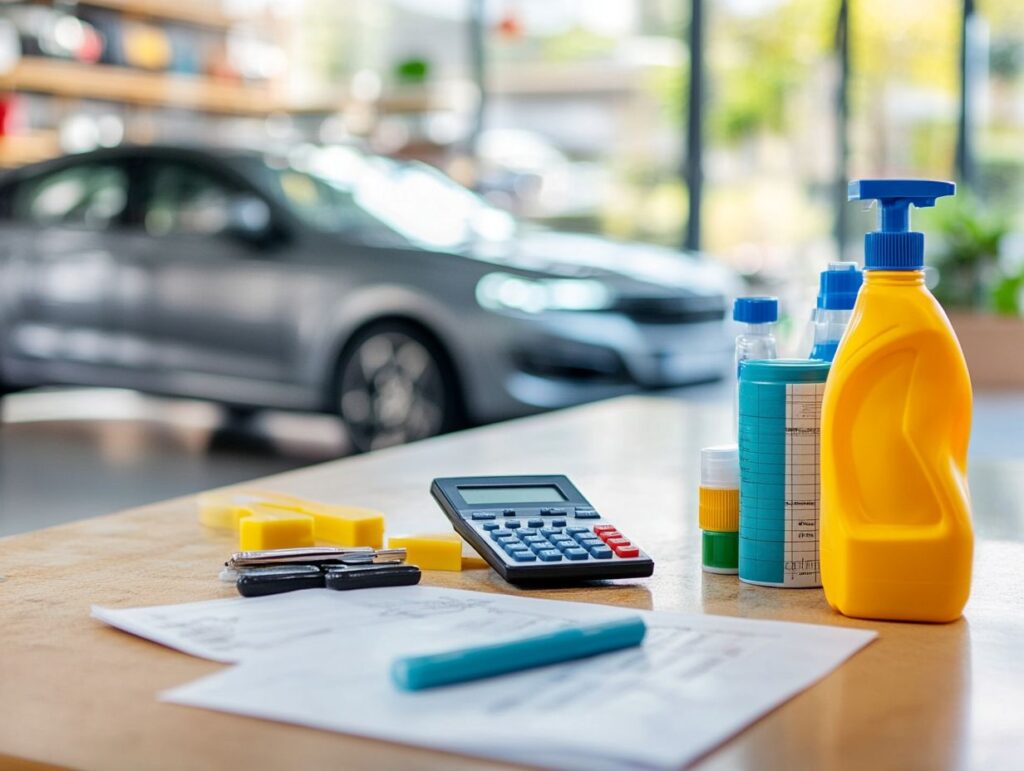
When embarking on the journey of starting an auto detailing business, it is wise to consider alternative equipment options as a strategy to save money. This includes leasing equipment, purchasing used tools, and implementing quality assurance measures without incurring excessive costs.
By carefully evaluating both leasing and the purchase of used equipment, aspiring detailers have the opportunity to tailor their investments to align with their budget and operational needs. Leasing allows access to high-quality tools without the significant upfront expenses, which can lead to a more flexible cash flow. Conversely, purchasing quality second-hand items can result in substantial savings over time, particularly when obtained from reputable suppliers.
Each option presents its unique advantages, and having a clear understanding of these choices can significantly impact both the initial setup and the ongoing expenses of the business.
Cost-Saving Strategies
Implementing effective cost-saving strategies can have a significant impact on the operational costs of an auto detailing business, particularly in areas such as employee wages, marketing budgets, and the use of automation tools to enhance efficiency.
By optimizing employee management practices—such as cross-training staff to handle multiple roles—businesses can reduce overtime expenses and boost productivity.
Embracing efficient marketing practices, like utilizing social media and targeted online advertising, can lead to more cost-effective customer outreach when compared to traditional methods.
The integration of automation tools serves to streamline scheduling, inventory management, and customer communication, minimizing manual errors while maximizing the speed of service delivery.
Together, these strategies not only help lower overhead costs but also improve customer satisfaction, ultimately leading to repeat business and a healthier bottom line.
Expected Return on Investment
Understanding the anticipated return on investment for an auto detailing business is crucial for evaluating its profitability. This assessment relies significantly on effective cash flow management, clearly defined revenue streams, and a competitive pricing model.
Having a firm grasp of these elements can help ensure the business operates successfully and meets financial goals.
Factors Affecting Profitability
Several factors can influence the profitability of an auto detailing business, including operational costs, customer retention strategies, thorough competition analysis, and the effective allocation of the marketing budget.
Understanding these elements is crucial for anyone aspiring to succeed in this competitive industry. For example, managing operational costs effectively not only minimizes overhead but also enables the establishment of more competitive pricing structures, which can attract a wider customer base.
Additionally, customer retention strategies are essential; by cultivating strong relationships and delivering exceptional service, businesses can secure repeat visits and referrals—both of which are vital for enhancing overall profits.
Conducting comprehensive competition analysis allows owners to stay ahead of industry trends and adjust their offerings accordingly, maximizing their appeal and ensuring long-term profitability.
Potential Earnings in the Auto Detailing Industry
The potential earnings in the auto detailing industry can vary significantly, influenced by the range of services offered, the types of detailing packages, and the profit margins established. This variance presents a lucrative opportunity for entrepreneurs who are willing to invest in quality and prioritize excellent customer service.
For example, basic wash-and-vacuum services typically generate lower revenue compared to more comprehensive detailing packages, which often encompass services such as waxing, interior shampooing, and paint correction. The profit margins for these upscale services can range from 50% to as high as 80%, depending on the expertise involved and the materials utilized. Furthermore, additional services like ceramic coating or headlight restoration can substantially elevate average transaction values.
By strategically diversifying their service offerings and targeting specific clientele—such as luxury vehicle owners or fleet services—businesses within this sector can maximize their income potential while ensuring that customers receive exceptional satisfaction.
Frequently Asked Questions

What Startup Costs Are Required to Launch an Auto Detailing Business?
The startup costs for launching an auto detailing business will vary depending on various factors such as location, type of services offered, and equipment needed. On average, you can expect to spend between $10,000 to $50,000 for initial startup costs.
What are the types of expenses involved in starting an auto detailing business?
The main expenses involved in starting an auto detailing business include equipment costs, business registration and licensing fees, insurance, marketing and advertising expenses, and initial inventory purchases.
What type of equipment is needed to start an auto detailing business?
The equipment needed for an auto detailing business will depend on the services you plan to offer. However, some essential equipment includes a pressure washer, vacuum cleaner, buffers, and various cleaning and detailing products.
Do I need any specific training or certifications to start an auto detailing business?
While there are no specific training or certification requirements to start an auto detailing business, it is recommended to have some training or experience in the field to provide high-quality services. You may also consider obtaining a business license and insurance for added credibility.
How long does it take to break even and start making a profit with an auto detailing business?
The time to break even and start making a profit with an auto detailing business will depend on various factors such as your initial investment, location, and demand for your services. On average, it can take anywhere from 6 months to a year to start seeing a profit.
Are there any ongoing costs involved in running an auto detailing business?
Yes, there are ongoing costs involved in running an auto detailing business, such as rent or lease for your business location, utilities, employee wages, and restocking supplies. It is important to factor in these costs when creating your business plan.
The AutoPros.online team is dedicated to bringing you high quality automotive content for professionals and car enthusiasts, with topics like auto detailing, performance modifiations, repairs and automotive news.


